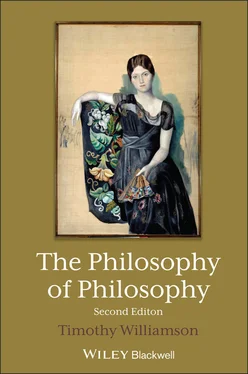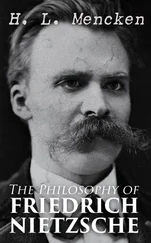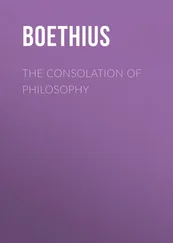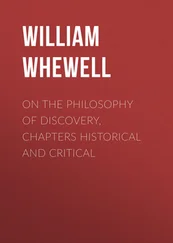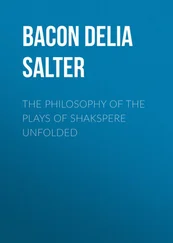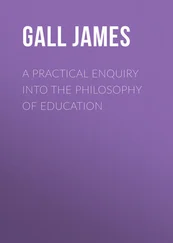Suppose, just for the sake of argument, that there are no elusive objects. That by itself would still not vindicate a restriction of philosophy to the conceptual, the realm of sense or thought. The practitioners of any discipline have thoughts and communicate them, but they are rarely studying those very thoughts: rather, they are studying what their thoughts are about. Most thoughts are not about thoughts. To make philosophy the study of thought is to insist that philosophers’ thoughts should be about thoughts. It is not obvious why philosophers should accept that restriction.
Even within what is usually considered analytic philosophy of mind, much work violates the two tenets of conceptual philosophy. Naturalists hold that everything is part of the natural world, and should be studied as such; many of them study thought as part of the natural world by not sharply distinguishing it from the psychological process of thinking. Those who study sensations or qualia without treating them as intentional phenomena are not usually attempting to analyze the structure of thought; their interest is primarily in the nature of the sensations or qualia themselves, not in our concepts of them. Even when the question of veridicality arises, it is not always conceded that there are structured thoughts: some philosophers claim that perception has a conceptually unstructured content that represents the environment as being a certain way. Their interest is in the nature of the nonconceptual content itself, not just in our concept of it.
Despite early hopes or fears, philosophy of mind has not come to play the organizing role in philosophy that philosophy of language once did. No single branch of philosophy does: philosophy is no more immune than other disciplines to increasing specialization. Nor is any one philosophical method currently treated as a panacea for philosophical ills, with consequent privileges for its home branch. Once we consider other branches of philosophy, we notice much more philosophizing whose primary subject matter is not conceptual.
Biology and physics are not studies of thought. In their most theoretical reaches, they merge into the philosophy of biology and the philosophy of physics. Why then should philosophers of biology and philosophers of physics study only thought? Although they sometimes study what biologists’ and physicists’ concepts are or should be, sometimes they study what those concepts are concepts of, in an abstract and general manner. If the conceptual turn is incompatible with regarding such activities as legitimately philosophical, why take the conceptual turn?
There is a more central example. Much contemporary metaphysics is not primarily concerned with thought or language at all. Its goal is to discover what fundamental kinds of things there are and what properties and relations they have, not to study the structure of our thought about them – perhaps we have no thought about them until it is initiated by metaphysicians. Contemporary metaphysics studies substances and essences, universals and particulars, space and time, possibility and necessity. Although nominalist or conceptualist reductions of all these matters have been attempted, such theories have no methodological priority and generally turn out to do scant justice to what they attempt to reduce.
The usual stories about the history of twentieth-century philosophy fail to fi t much of the liveliest, exactest, and most creative achievements of the fi nal third of that century: the revival of metaphysical theorizing, realist in spirit, often speculative, sometimes commonsensical, associated with Saul Kripke, David Lewis, Kit Fine, Peter van Inwagen, David Armstrong and many others: work that has, to cite just one example, made it anachronistic to dismiss essentialism as anachronistic. 6On the traditional grand narrative schemes in the history of philosophy, this activity must be a throwback to pre-Kantian metaphysics: it ought not to be happening – but it is. Many of those who practice it happily acknowledge its continuity with traditional metaphysics; appeals to the authority of Kant, or Wittgenstein, or history, ring hollow, for they are unbacked by any argument that has withstood the test of recent time.
One might try to see in contemporary metaphysics a Quinean breakdown of divisions between philosophy and the natural sciences. But if it is metaphysics naturalized, then so is the metaphysics of Aristotle, Descartes, and Leibniz. Armchair argument retains a central role, as do the modal notions of metaphysical possibility and necessity. Although empirical knowledge constrains the attribution of essential properties, results are more often reached through a subtle interplay of logic and the imagination. The crucial experiments are thought experiments.
Might the contrast between the new-old metaphysics and the conceptual turn be less stark than it appears to be? Contemporary metaphysicians fi rmly resist attempts to reconstrue their enterprise as the analysis of thought – unlike Sir Peter Strawson, who defi ned his “descriptive metaphysics” as “content to describe the actual structure of our thought about the world” (1959: 9). But can one reflect on concepts without reflecting on reality itself? For the aboutness of thought and talk is their very point. This idea has been emphasized by David Wiggins, Dummett’s successor and my predecessor in the Wykeham Chair, and author of some of the most distinguished essentialist metaphysics, in which considerations of logic and biology harmoniously combine. Wiggins (2001: 12) writes: “Let us forget once and for all the very idea of some knowledge of language or meaning that is not knowledge of the world itself.”
Wiggins is not just stating the obvious, that language and meaning are part of the world because everything is part of the world. Rather, his point is that in defi ning words – natural kind terms, for instance – we must point at real specimens. What there is determines what there is for us to mean. In knowing what we mean, we know something about what there is. That prompts the question how far the analysis of thought or language can be pursued autonomously with any kind of methodological priority.
Dummett claimed not that the traditional questions of metaphysics cannot be answered but that the way to answer them is by the analysis of thought and language. For example, in order to determine whether there are numbers, one must determine whether number words such as “7” function semantically like proper names in the context of sentences uttered in mathematical discourse. But what is it so to function? Although devil words such as “Satan” appear to function semantically like proper names in the context of sentences uttered in devil-worshipping discourse, one should not jump to the conclusion that there are devils. However enthusiastically devilworshippers use “Satan” as though it referred to something, that does not make it refer to something. Although empty names appear to function semantically like referring names in the context of sentences uttered by those who believe the names to refer, the appearances are deceptive. “Satan” refers to something if and only if some sentence with “Satan” in subject position (such as “Satan is self-identical”) expresses a truth, but the analysis of thought and language is not the best way to discover whether any such sentence does indeed express a truth. Of course, what goes for “Satan” may not go for “7.” According to some neo-logicists, “7 exists” is an analytic truth (what Ayer might have called a formal consequence of defi nitions), which “Satan exists” does not even purport to be. Such a claim needs the backing of an appropriate theory of analyticity.
After this preliminary sketch, it is time to get down to detailed work. The next three chapters examine different forms of the linguistic or conceptual turn. Chapter 2uses a case study to consider in a microcosm the idea that philosophers’ questions are implicitly about language or thought when they are not explicitly so. Chapters 3and 4assess a wide range of versions of the idea that the armchair methodology of philosophy is grounded in the analytic or conceptual status of a core of philosophical truths, which need not be about language or thought, even implicitly. In each case the upshot is negative. Although philosophers have more reason than physicists to consider matters of language or thought, philosophy is in no deep sense a linguistic or conceptual inquiry, any more than physics is. But it does not follow that experiment is an appropriate primary method for philosophy. Similar arguments suggest that mathematics is in no deep sense a linguistic or conceptual inquiry, yet experiment is not an appropriate primary method for mathematics. The second half of the book develops an alternative conception of philosophy, on which a largely armchair methodology remains defensible, as it does for mathematics.
Читать дальше
